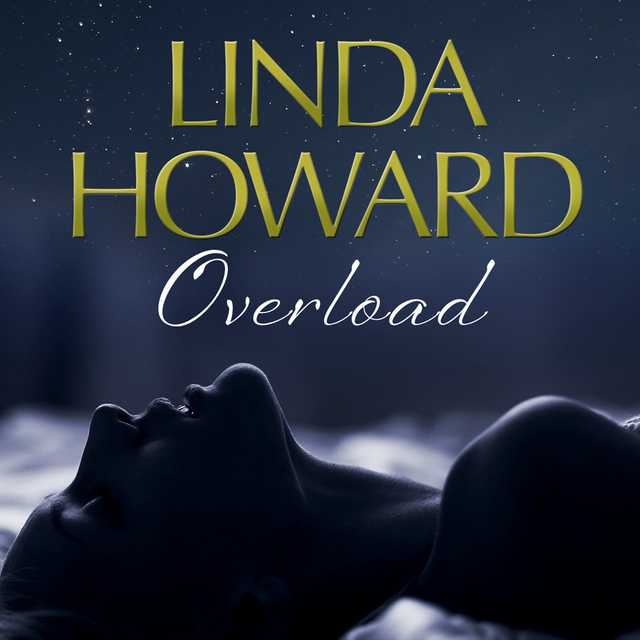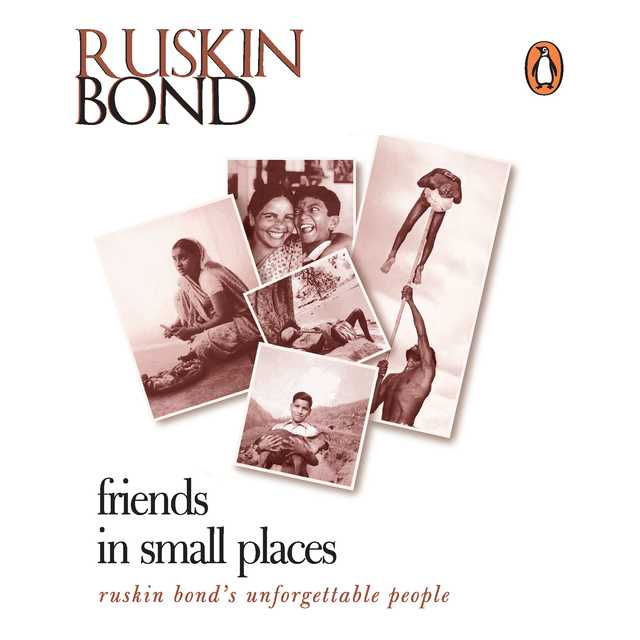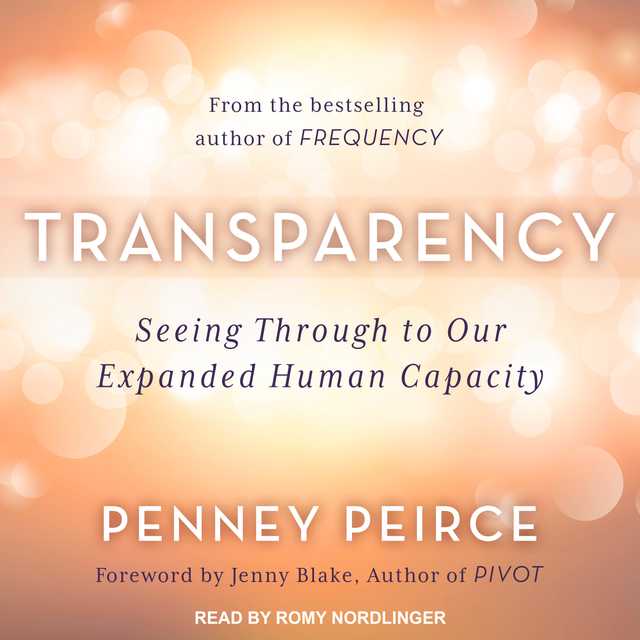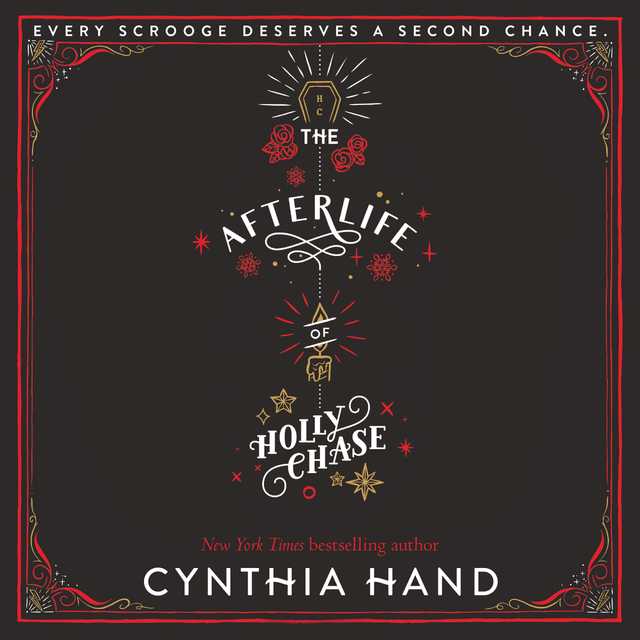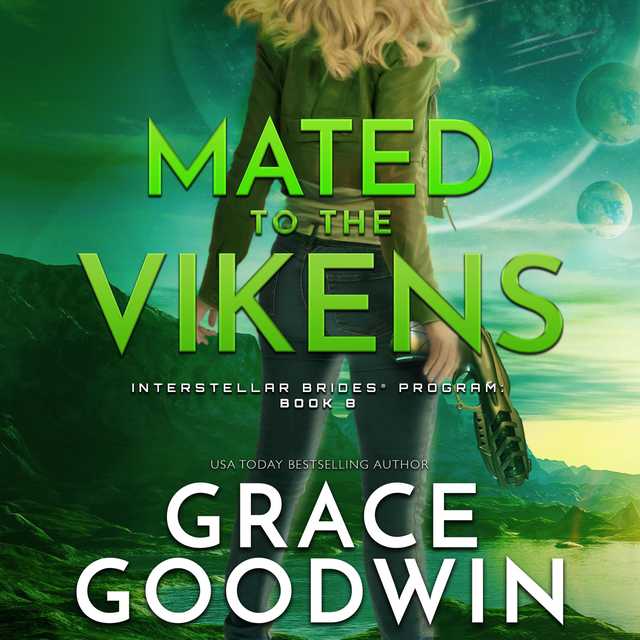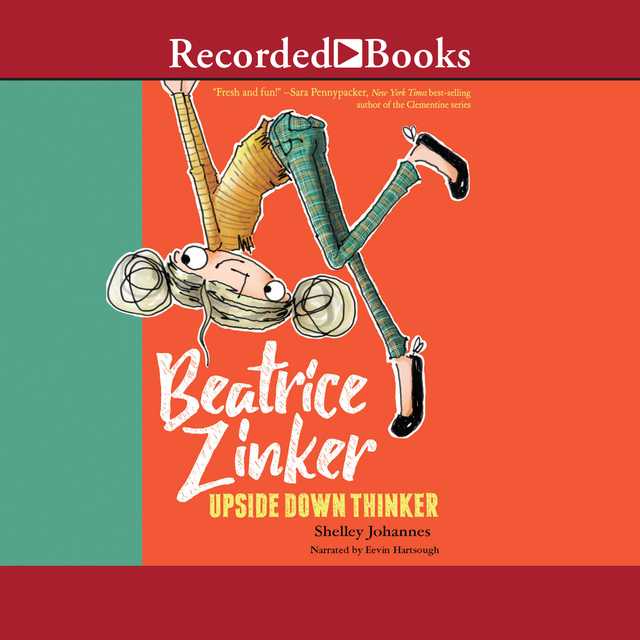The Cider House Rules Audiobook Summary
“John Irving’s best novel . . . He is among the very best storytellers.” – Philadelphia Inquirer
From one of America’s most beloved and respected writers comes the classic story of Homer Wells, an orphan, and Wilbur Larch, a doctor without children of his own, who develop an extraordinary bond with one another.
“Entertaining and affecting . . . A truly astounding amount of artistry and ingenuity.” – San Diego Union
“Witty, tenderhearted, fervent, and scarifying.” – New York Times Book Review
Other Top Audiobooks
The Cider House Rules Audiobook Narrator
Grover Gardner is the narrator of The Cider House Rules audiobook that was written by John Irving
John Irving has been nominated for a National Book Award three times–winning in 1980 for the novel The World According to Garp. In 1992, Irving was inducted into the National Wrestling Hall of Fame in Stillwater, Oklahoma. He won the 2000 Oscar for Best Adapted Screenplay for The Cider House Rules. In 2001, he was elected to the American Academy of Arts and Letters. Irving's most recent novel is In One Person (2012).
About the Author(s) of The Cider House Rules
John Irving is the author of The Cider House Rules
More From the Same
- Publisher : HarperAudio
- Abraham
- American Gods [TV Tie-In]
- Dead Ringer
- House of Sand and Fog
- Prey
The Cider House Rules Full Details
| Narrator | Grover Gardner |
| Length | 24 hours 8 minutes |
| Author | John Irving |
| Category | |
| Publisher | HarperAudio |
| Release date | January 04, 2005 |
| ISBN | 9780060790035 |
Additional info
The publisher of the The Cider House Rules is HarperAudio. The imprint is HarperAudio. It is supplied by HarperAudio. The ISBN-13 is 9780060790035.
Global Availability
This book is only available in the United States.
Goodreads Reviews
Mario the lone bookwolf
July 24, 2021
How the bigotry, insanity, and inhumanity of institutionalized stigmatization of and hatred against women, especially regarding pregnancy, marriage and the control about bastardization of humans, lead to disgusting world views and practices that were omnipresent just a few decades ago and still are in many parts of the world, is a key element of the novel. Orphanages for kids that could have parents, but are born under the stigma of being illegitimate and thereby the societal death and endless disgrace and danger of ostracism for the mother, are a logical result and a part of the setting oft he bittersweet tragicomedy Irving serves the reader. Strong women, emancipation, and feminism are a key element of Irvings´ writing, possibly a side effect of growing up without a father and having an even deeper relationship with his mother, which leads to an idealization and glorification of femininity. The role of fathers. How they react, what they think, want, feel, how different their opinions and mentality are in comparison to the mothers, how stupid social conventions influence the child-father relations, and what true manliness is. Maybe too influenced by the fact that Irving had no father, he dealt with this topic with an intensity many bad, disinterested, or overstressed fathers can´t or don´t want to invest. Autobiography and his writing are often the same and I couldn´t name a writer who added so much of himself, even very intimate and personal details, in his work. Only Irving knows how much is fictional and how much is true, but I find it amazing to use the gift of writing to make oneself immortal by taking pieces out of one's real life and make them fictional masterpieces.Tropes show how literature is conceptualized and created and which mixture of elements makes works and genres unique: https://tvtropes.org/pmwiki/pmwiki.ph...https://tvtropes.org/pmwiki/pmwiki.ph...
Glenn
April 01, 2022
Hey! I just plucked my first John Irving with The Cider House Rules!Something strange happened midway through reading The Cider House Rules, my first John Irving book.* I found myself completely immersed in its world.What’s strange is that for the first couple hundred pages, I didn’t particularly believe in this early 20th century Dickensian fable about orphans, surrogate families, an ether-addicted abortionist and the arbitrariness of some rules. But Irving’s storytelling skills eventually won me over. His prose is persuasive.Homer Wells is raised in an orphanage in the isolated town of St. Cloud’s, Maine. Although he’s been placed with families four separate times, something has always gone wrong with his adoptions, and so he continually ends up back at the orphanage, where he eventually assists Dr. Wilbur Larch in his unusual obi/gyn practice. Women come to St. Cloud’s to either give their children up for adoption or have the doctor terminate their pregnancies. When Homer is old enough to understand the latter, he decides to stop helping with those procedures. And when Wally Worthington and Candy Kendall, a glamorous young couple who’ve come to terminate their own unexpected pregnancy, tell Homer about the apple orchards back home near the ocean, he leaves with them, planning to stay just for a week or so to learn about orchards for the orphanage.The book essentially recounts Homer’s coming-of-age. Out in the big bad world, he realizes that evil and temptation exist, and that moral choices aren’t so black and white. Having grown up in an old-fashioned world, presided over by Larch and Nurses Edna (who’s secretly in love with Larch) and Angela, he’s been insulated. Choices seem so much easier in the books that he used to read to the orphans: Dickens’s Great Expectations and David Copperfield (for the boys), and Jane Eyre for the girls.In a sense, Homer sets out to realize his own great expectations, working in the orchards that Wally’s mother runs, falling in love with Candy and forging a lasting friendship with Wally. Meanwhile, Dr. Larch, who’s addicted to inhaling ether, is getting older; the board of the orphanage is looking to replace him. Will Homer eventually return?Anyone who’s only seen the film version will be surprised by a plotline about another major character, Melony, an orphan who initiates Homer into sex and feels betrayed by his departure. She’s determined to track him down, but her motivations remain vague. Revenge? Jealousy? Again: because Irving is such a smooth and skilled writer, the Melony sections are always readable and provide a bit of tension in a plot that can sometimes feel loose.A few other quibbles: Homer’s decision to leave with Candy and Wally feels odd, especially since he’s just met them. Often the book’s humour works, but just as often it feels contrived. And I felt cheated at the end when some big secrets are revealed – things we’ve anticipated for half the book – and we don’t get to see the characters’ responses. But I came to love Irving’s people. I loved seeing them interact with each other, pick up experience, get older, reflect on their earlier selves. They’ll teach you about the female reproductive system or how many bushels of apples it takes to create a vat of cider. They’ll make you consider how something as simple as a Ferris Wheel might seem mysterious and magical, or how it might feel to ride a bicycle if you’ve never ridden one before. I also liked the book’s central allegory about blindly following rules. At times the theme felt a bit didactic, but at others times it felt beautifully integrated into the story. The author has great empathy for his characters. And he knows how to create an entire fictional world. The details might not seem true in today’s busy, cynical world, but they do in the world of the book. And that’s enough for me.I’m looking forward to entering another one of Irving’s fictional worlds soon.---* I almost finished Irving’s In One Person for a book club, but still had 60 pages to go before the group met. (I should go back and finish it.) And since Cider House, I’ve also read his breakthrough book The World According to Garp
Katie
September 18, 2007
I just finished reading this novel, and it is so phenominal that I'm almost speechless, and I'm sad that it is over. The story is engrossing, rich, moving, tragic, and satisfying, and the imagery is extraordinarily powerful. The plot takes place during the first half of the 1900's in rural Maine, and tells of Dr. Larch, an obstetrician, founder of an orphanage, abortionist, and ether addict, and his favorite orphan, and heroic figure, Homer Wells. Irving develops the characters superbly, such that the reader comes to know and love all of them, even those with significant flaws. The abortion issue is handled perfectly; while it becomes obvious what Irving's opinion is, he presents both sides of the issue objectively and refrains from preaching on the subject or becoming overtly political. Normally I recommend reading a book before seeing the movie adaptation, but in this case, the movie is excellent, so by reading the book first, one may not appreciate the film as much as one should. Irving is a storyteller on par with Dickens, and I'm going to add his other works to my future reading list.
Mark
August 06, 2022
I read this book a long time ago (more than 20 years), but today seems like a good day to review it. It was published in 1985 and starts in the 1940s.It's a long, complicated, literary novel that tackles the issue of abortion and also racism."Good night, you princes of Maine, you kings of New England." That's how the elderly Dr Larch says goodnight to his collection of orphans.Larch is an abortionist who took to the task after seeing the suffering of prostitutes forced to seek unqualified help in this area. He also accepts unwanted babies into his orphanage. He's a complex individual, addicted to the ether with which he sedates his patients.The story follows one of the orphans, Homer, and as he grows Larch comes to see him as his successor, training him appropriately. As a young man Homer leaves the orphanage and becomes involved with a couple who run a cider orchard. The work is primarily done by black labourers who live in the Cider House and have the eponymous list of rules as their own private constitution to maintain order/civility in the difficult circumstances of their lives. Homer and later, his son, mix with the labourers and many questions about American society and various personal relationships and power dynamics are asked. The book doesn't preach at you. It navigates the fraught waters of race and abortion in the US over several decades as Homer passes through various stages in his life. It's primarily about people, about the strange, prickly, violent, loving individuals that occupy its focus. Like much literary fiction there are no answers given, no winners, just lives lived. People are flawed, inconsistent, hard to understand, but ultimately they're the company we get as we march through the years.In the end, Homer resolves his feelings about Dr Larch, the orphanage, and the career Dr Larch had mapped out for him.Irving is a skilled and sensitive writer, the book is an engaging read. The focus on found family, relationships, procreations, fathers both biological and those who step into the role, all provide a framework on which the issue of abortion, unwanted babies, and broken lives can be exhibited, inspected, and explored. Join my Patreon Join my 3-emails-a-year newsletter #prizes.
Colin
September 30, 2021
I've read this more than once and can say it is my favourite J Irving novel. It has a tapestry of warmth to it.
Charlotte
June 14, 2017
This is a pretty hefty novel, but so worth it!It covers an expanse of characters' history - the main one being Homer, a young boy brought up in an orphanage his entire life. The orphanage is connected to a hospital where secret abortions are performed.Homer becomes assistant to Dr. Larch and learns the trade, before having a moral struggle, and chooses to leave the orphanage to live with a couple who have recently visited.He moves to their farm, where they grow apples to make cider and Homer's life changes for ever.I love this novel, it is one of my favourites and put Irving's books at the top of my list.Anyone who has an interest in American history and in depth character studies - go for it, you won't be disappointed!
Jr
May 27, 2013
In other parts of the world, they love John Green. Here in St. JR's, we love John Irving. According to my dictionary, Green is of the color of growing foliage, between yellow and blue in the color wheel. While Irving on the other hand, is a genius, hard-working, persevering person who can manage time efficiently; knows how to balance important aspects of life. This has led me to conclude that Irving is a much more suitable name for a writer than Green, and has also solidified my belief that Irving is a much better novelist than Green. It just struck me that the definition of Irving is so close to Irving's nature as a writer. "knows how to balance important aspects of life" So true. John Green, taking nothing away from him, has much to learn from John Irving. The hordes of teens crying because of John Green's melodramatic deaths will benefit much more if they try reading John Irving. I think I'll feel much better about the collective future of the human race if the crazy teenage obsession towards John Green was given to John Irving instead. Moving on, John Irving's The Cider House Rules is a thought-provoking novel that's both entertaining and affecting. As expected from Irving, the novel is filled with characters to feel for. Characters that have the weirdest backgrounds, the funniest thoughts, the craziest names. Yet they appear more real than the real characters in our lives, the characters we know. It has always been Irving's strength, his characters. Homer Wells, the protagonist, is an orphan boy whose search for identity manifests a richness of the human spirit that is unlike any I have ever read. His story is a marvel to watch as it unfolds. During the first parts of the book, I couldn't help feel that grim aura that enveloped St. Cloud's. That fog-like cloud, that mist that was ever present, that presence of loneliness, of unwantedness, of reckless abandon. That feeling that every orphan felt etched inside their bones. The feeling that every woman had whether their case was that of an abortion or of the orphan conception. I felt it. “Whether I shall turn out to be the hero of my own life, or whether that station will be held by anybody else, these pages must show.” That Homer turned to Dickens and Bronte for guidance was fitting. His several experiences with foster homes made him realize that he belonged in St. Clouds. He learned "to be of use". So he became the assistant to Dr. Larch, the director of the orphanage and also his father figure. The relationship between Dr. Larch and Homer Wells has got to be one of the most touching examples of a father-son relationship in literature albeit not by blood. From St. Clouds he would move to Ocean View Orchard. I'm not going to get into specifics, this is not that kind of a review. You need to discover that on your own. I'm just gonna say that his journey towards finding out who he is ultimately ends in a self-discovery that touches the heart. It's a very special book. One of the most important if not the most important point of the book has got to do with abortion. Dr. Larch did abortions in St. Cloud's and wanted Homer to follow in his foot-steps. Homer, though he thought abortion should be legalized, didn't want to perform it. He believed that fetuses have souls. “Here is the trap you are in.... And it's not my trap—I haven't trapped you. Because abortions are illegal, women who need and want them have no choice in the matter, and you—because you know how to perform them—have no choice, either. What has been violated here is your freedom of choice, and every woman's freedom of choice, too. If abortion was legal, a woman would have a choice—and so would you. You could feel free not to do it because someone else would. But the way it is, you're trapped. Women are trapped. Women are victims, and so are you.” “These same people who tell us we must defend the lives of the unborn-they are the same people who seem not so interested in defending anyone but themselves after the accident of birth is complete! These same people who profess their love of the unborn's soul-they don't care to make much of a contribution to the poor, they don't care to offer much assistance to the unwanted or the oppressed! How do they justify such a concern for the fetus and such a lack of concern for unwanted and abused children? They condemn others for the accident of conception; they condemn the poor-as if the poor can help being poor. One way the poor could help themselves would be to be in control of the size of their families. I thought that freedom of choice was obviously democratic-was obviously American!” “If pride is a sin ... moral pride is the greatest sin.” I have come out of this book much more aware of my position towards abortion. Before I read this book, I would have said that I was against abortion. I didn't like the thought of killing babies, but I hadn't really reflected on the gravity of the situation. With the insights I've gotten from the book, and after my struggle with my thoughts. I have finally decided that I am against anti-abortion laws. It actually doesn't matter if you believe that it is wrong or not. What matters is that people who think otherwise should have the choice to avail it. If I have learned anything in my short life, it is never to impose my will upon others. And I believe that anti-abortion laws, is just that. Imposition of self-righteousness. I'm not forcing my belief upon you, I'm not starting a debate. I'm just stating my opinion. Nothing else. This book opened my eyes, if not removed that veil of ignorance around it. It's just saddening that abortion is still illegal in my country. Here's to hoping that it'll change soon.Another important point of the book has to do with rules. The name of the novel, The Cider House Rules, concurs to the idea that rules play a very important role in this novel. Actually, it has more to do with breaking the rules. “We got our own rules.” The words of Mr. Rose, the boss of the apple-picking crew, when Homer asks him why the men don’t follow the rules posted in the cider house. Mr. Rose’s words underscore a major theme of the novel: when the rules don’t make sense, people have to make their own rules. Homer learns this lesson when he begins to perform abortions. Although the procedure is illegal, he feels he must “break the rules” to do what is right. In the end, he chose to be the Hero of his own life. He chose to make his own rules. As I end, let me leave you with an excerpt that I think greatly encapsulates the message of the book: “It´s natural to want someone you love to do what you want, or what you think would be good for them, but you have to let everything happen to them. You can't interfere with people you love any more than you're supposed to interfere with people you don't even know. And that's hard, ..., because you often feel like interfering -you want to be the one who makes the plans.”
Cody | CodysBookshelf
August 14, 2018
By now, every person I associate with on a regular basis knows how big a John Irving fan I am. It’s no secret that I think he is, arguably, the greatest living writer (with respect to Thomas Pynchon, Joyce Carol Oates, Toni Morrison, etc), and he has penned a number of modern American classics. I had read all the works from his “classic” period, except for one. The Cider House Rules.It was time to get rid of this blindspot.I spent almost a week within the pages of this long novel. I spent a lot of time trudging the halls of St. Cloud’s orphanage with Doctor Larch and the nurses; my hands feel almost calloused from the months and years (or so it felt, at times) picking apples at the Ocean View orchard, with Homer and Angel and the migrants. Irving’s 1985 release almost totally took me back to the time he writes about: the first half of the twentieth century, in rural Maine country. The sense of setting perfectly evoked, able to swallow almost any reader.Like every Irving novel, this is not a quick read. It unspools slowly — and Cider House seems to unspool even slower than this author’s other works; maybe it’s the long chapters — and forces the reader to have patience. All is worth it in the end. I want to reread this book, or at least read about a world similar to this one. Maybe I’ll pick up another Dickens. My heart is left aching, knowing I’ve just experienced another modern classic as penned by John Irving.”It’s natural to want someone you love to do what you want, or what you think would be good for them, but you have to let everything happen to them. You can't interfere with people you love any more than you're supposed to interfere with people you don't even know. And that's hard, because you often feel like interfering—you want to be the one who makes the plans.”
Dagio_maya
February 05, 2021
” Le regole (egli arguiva) non pregano; le regole ordinano.” Pubblicato nel 1985, “Le regole della casa del sidro”, è un romanzo molto conosciuto soprattutto per la trasposizione cinematografica del 1999.La storia è ambientata nel nebbioso Maine tra il 1910 ed il 1940. All’orfanotrofio di St Cloud’s, William Larch si occupa di far nascere bambini destinati all’abbandono ma, allo stesso tempo, è determinato nel sostenere quelle madri che, invece, scelgono l’aborto:”... il lavoro del Signore e quello del Diavolo.”Tra i tanti bambini ospitati, spicca Homer Wells che dopo una serie di grottesche adozioni fallite resta nella struttura come aiutante di Larch.La vita abitudinaria tra la sala operatoria e la lettura serale di Dickens ai più piccoli, sembra ad Homer un punto fermo fino al giorno in cui arriva una coppia di fidanzati che stravolgeranno la sua vita...La seconda parte del romanzo si svolge su più piani: da un lato Homer e la sua scoperta del mondo con le sue regole e delle sue complicate relazioni;dall’altra Larch, che abbandonato da questo figlio putativo diventa sempre più dipendente dall’etere.Forse a tratti un po’ dispersivo ma comunque un romanzo di grande ricchezza di personaggi, di ambientazioni e di contenuti.” “Interferisco, io, forse?” domandò Larch. “Quando una donna assolutamente priva di mezzi mi dice che non può rassegnarsi ad abortire, che deve invece, semplicemente, mettere al mondo un altro orfano... interferisco, io? M’immischio forse?“No,” disse, raschiando. “L’assisto nel parto, mannaggia. E credi che sia felice in genere la vita dei bambini che nascono qui? Credi forse che il loro futuro sia roseo?”
Sonia
June 05, 2021
What can I say about this beautiful book?Only that I wanted to stroke its pages...Only that it brought a lump in my throat that is always there whenever I think of it.
Pamela
January 23, 2008
** spoiler alert ** I was actually really surprised at how much I enjoyed this book. I am VERY Pro-Life and was very skeptical before about picking it up...although I love John Irving as an author. He is excellent at character development and his stories are so multifaceted that you are never disappointed. This is certainly true here in this novel. My surprisingly favorite character was Melony. She was hauntingly creepy, pathetically adorable and demanding of your attention although not a primary character. I loved how Irving intertwined her story into the theme of the book. There was a parallel running between Dr. Larch and Homer that Irving carved brilliantly. Although somewhat expected, the ending was tragic and sad. I found myself torn with my own personal feelings about the love triangle of Wally, Candy and Homer. One always wants the orphan to find his/her riches or personal happiness. This novel reminds us that sometimes even the underdog doesn't win although he plays a damn good game. All in all, this was a wonderful read. Hats off to Irving once again for a rich and delectable story...
Bill
February 01, 2008
I started the Cider House Rules after giving up on 3 novels that just couldn't hold my attention.John Irving will certainly make you love reading again. The Cider House Rules is once again a novel rich with characters so real you forget this is fiction and you care about what happens to them.Why can I only say that about a mere handful of writers?This is a novel about abortion in the 1940s. The dilemmas of abortion are obvious, and this novel does lean towards pro-choice. I think pro-lifers would be well advised to save themselves the ordeal, butthat really is too bad since they would miss out on a wonderful read. John Irving is a master writing about the human condition, and given the setting of an orphanage, unwanted children, an elderly ether-addicted doctor, this is every bit as great as you would expect it to be.If you find yourself in the same place I was, where you just can't seem find interest in reading anymore, pick this one up and get to know some wonderful (and not so wonderful) people.
Lesley
November 21, 2018
Incredible book. You can watch my review here - http://youtu.be/NINrIZE1Dco
Most Popular Audiobooks
Frequently asked questions
Listening to audiobooks not only easy, it is also very convenient. You can listen to audiobooks on almost every device. From your laptop to your smart phone or even a smart speaker like Apple HomePod or even Alexa. Here’s how you can get started listening to audiobooks.
- 1. Download your favorite audiobook app such as Speechify.
- 2. Sign up for an account.
- 3. Browse the library for the best audiobooks and select the first one for free
- 4. Download the audiobook file to your device
- 5. Open the Speechify audiobook app and select the audiobook you want to listen to.
- 6. Adjust the playback speed and other settings to your preference.
- 7. Press play and enjoy!
While you can listen to the bestsellers on almost any device, and preferences may vary, generally smart phones are offer the most convenience factor. You could be working out, grocery shopping, or even watching your dog in the dog park on a Saturday morning.
However, most audiobook apps work across multiple devices so you can pick up that riveting new Stephen King book you started at the dog park, back on your laptop when you get back home.
Speechify is one of the best apps for audiobooks. The pricing structure is the most competitive in the market and the app is easy to use. It features the best sellers and award winning authors. Listen to your favorite books or discover new ones and listen to real voice actors read to you. Getting started is easy, the first book is free.
Research showcasing the brain health benefits of reading on a regular basis is wide-ranging and undeniable. However, research comparing the benefits of reading vs listening is much more sparse. According to professor of psychology and author Dr. Kristen Willeumier, though, there is good reason to believe that the reading experience provided by audiobooks offers many of the same brain benefits as reading a physical book.
Audiobooks are recordings of books that are read aloud by a professional voice actor. The recordings are typically available for purchase and download in digital formats such as MP3, WMA, or AAC. They can also be streamed from online services like Speechify, Audible, AppleBooks, or Spotify.
You simply download the app onto your smart phone, create your account, and in Speechify, you can choose your first book, from our vast library of best-sellers and classics, to read for free.
Audiobooks, like real books can add up over time. Here’s where you can listen to audiobooks for free. Speechify let’s you read your first best seller for free. Apart from that, we have a vast selection of free audiobooks that you can enjoy. Get the same rich experience no matter if the book was free or not.
It depends. Yes, there are free audiobooks and paid audiobooks. Speechify offers a blend of both!
It varies. The easiest way depends on a few things. The app and service you use, which device, and platform. Speechify is the easiest way to listen to audiobooks. Downloading the app is quick. It is not a large app and does not eat up space on your iPhone or Android device.
Listening to audiobooks on your smart phone, with Speechify, is the easiest way to listen to audiobooks.











